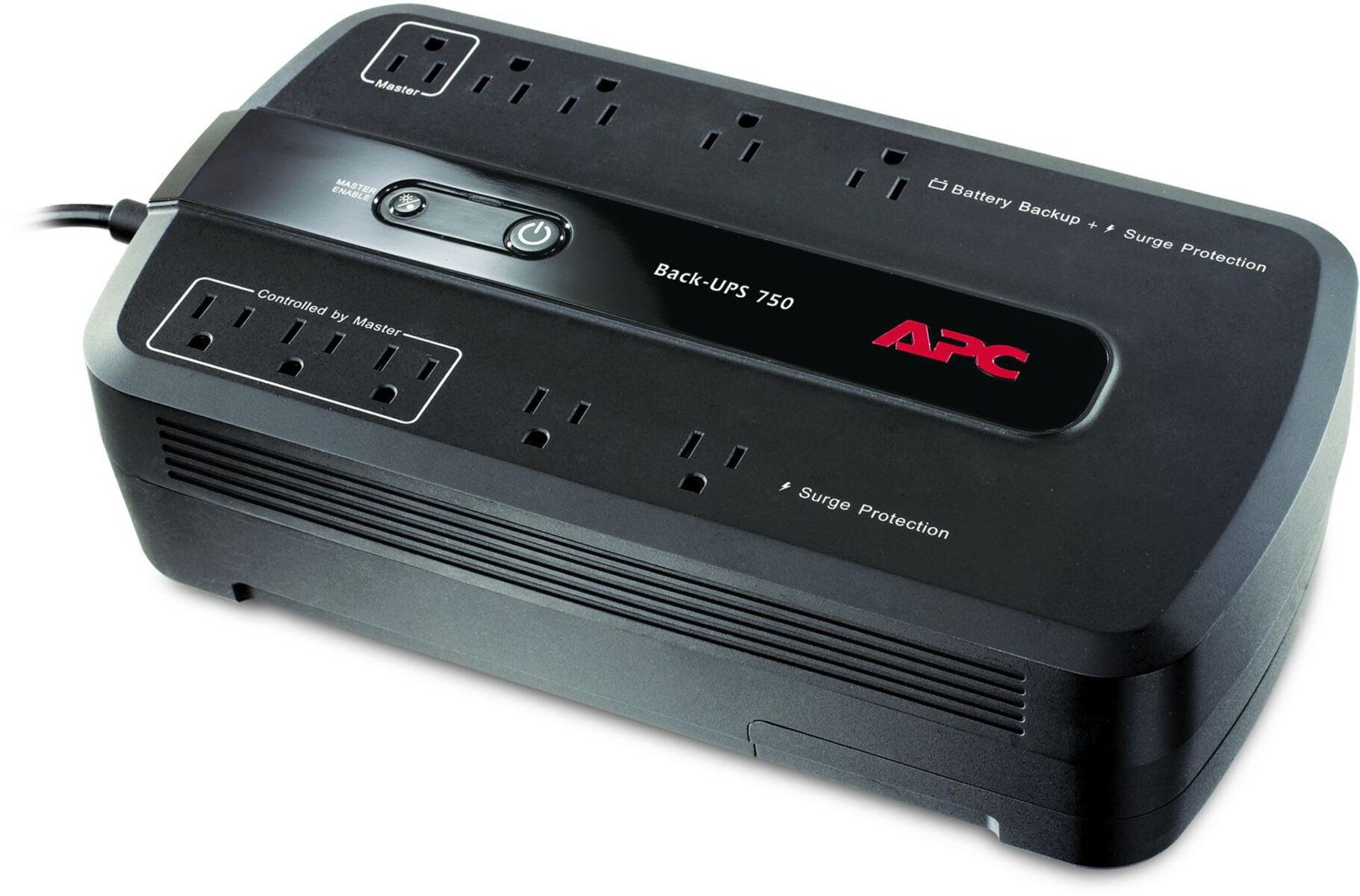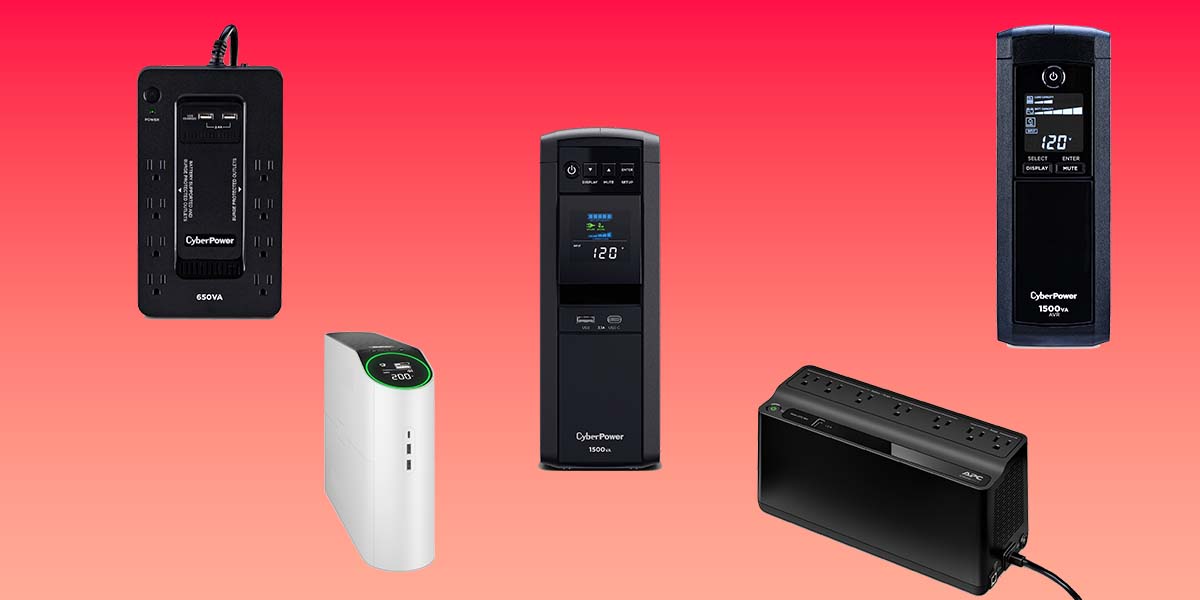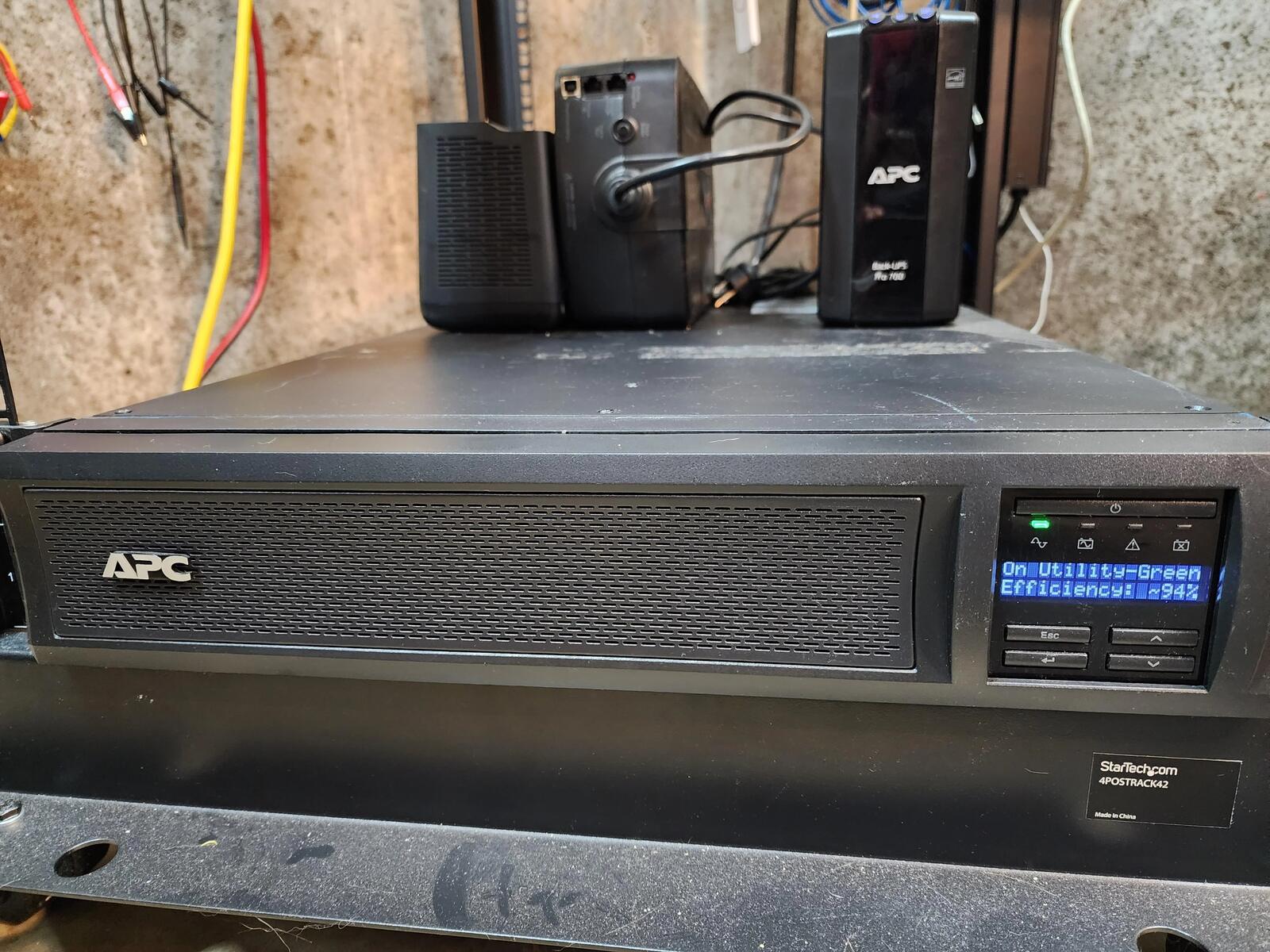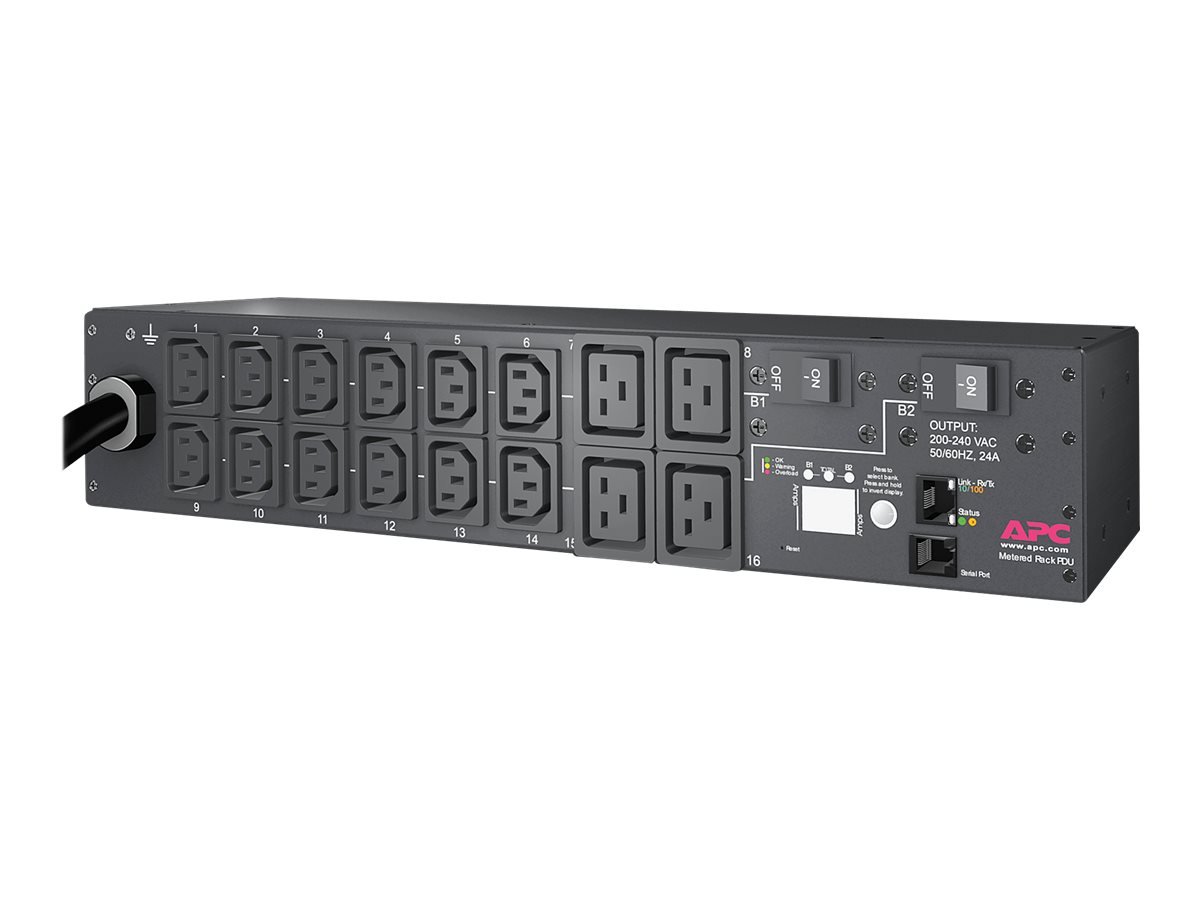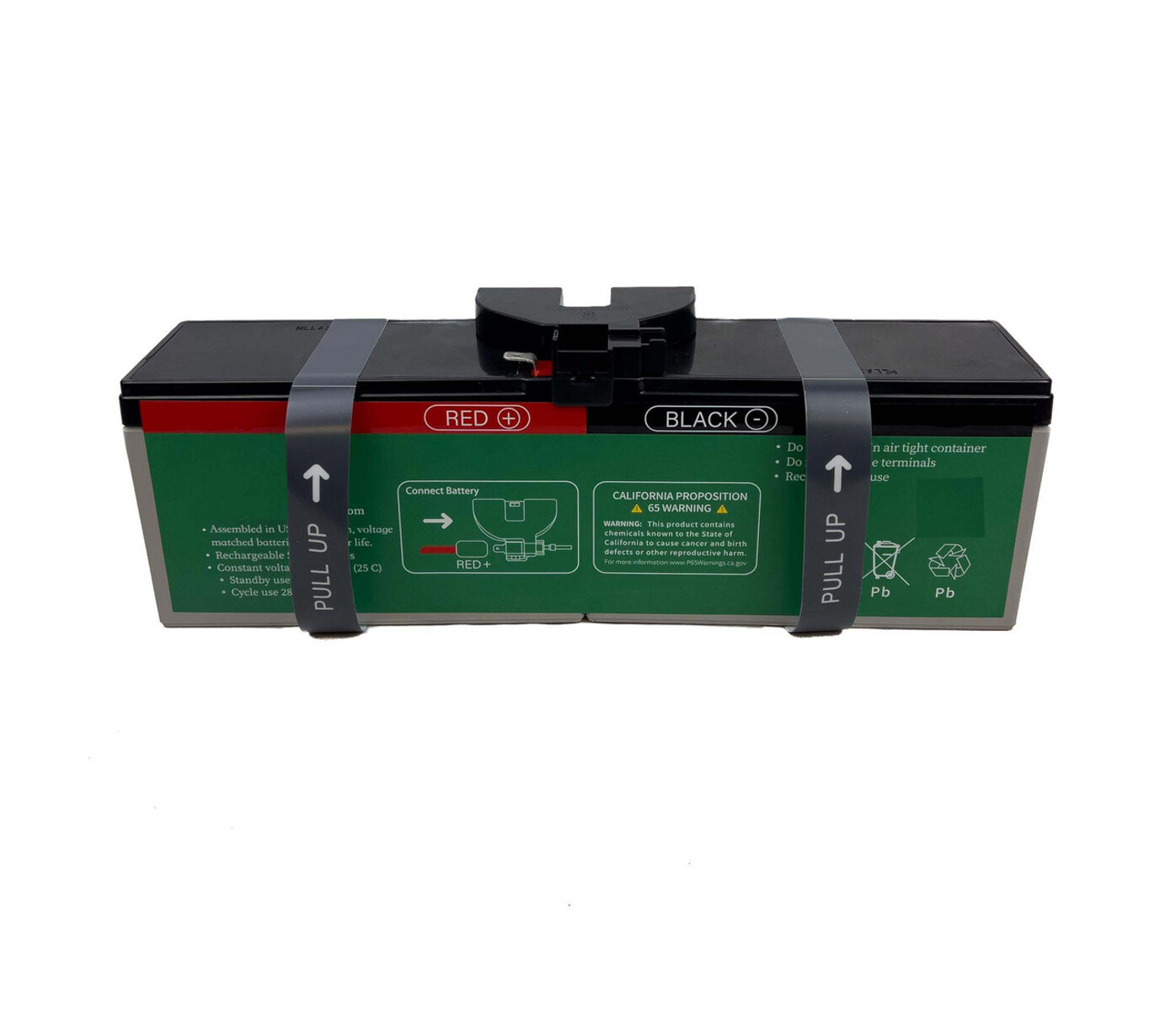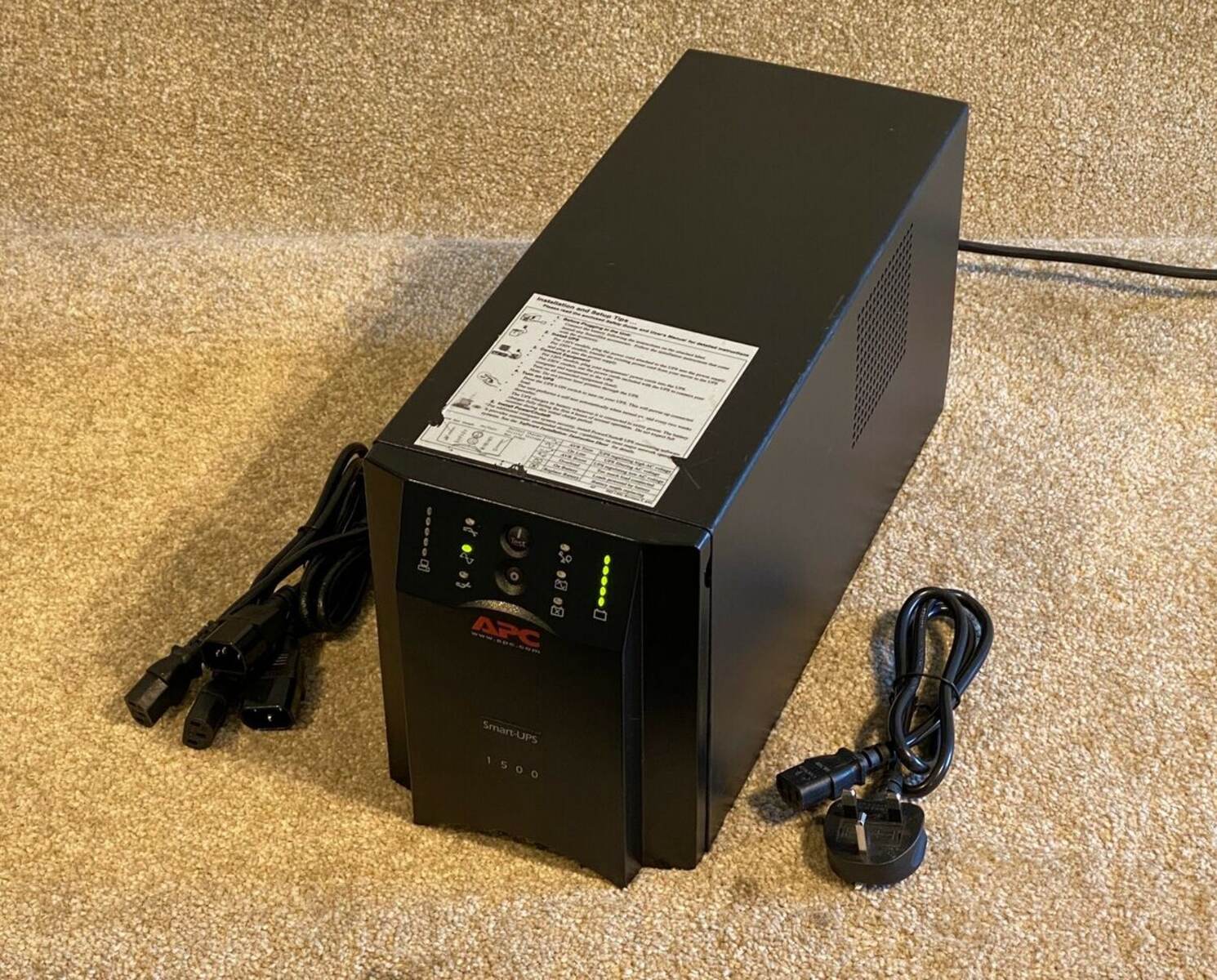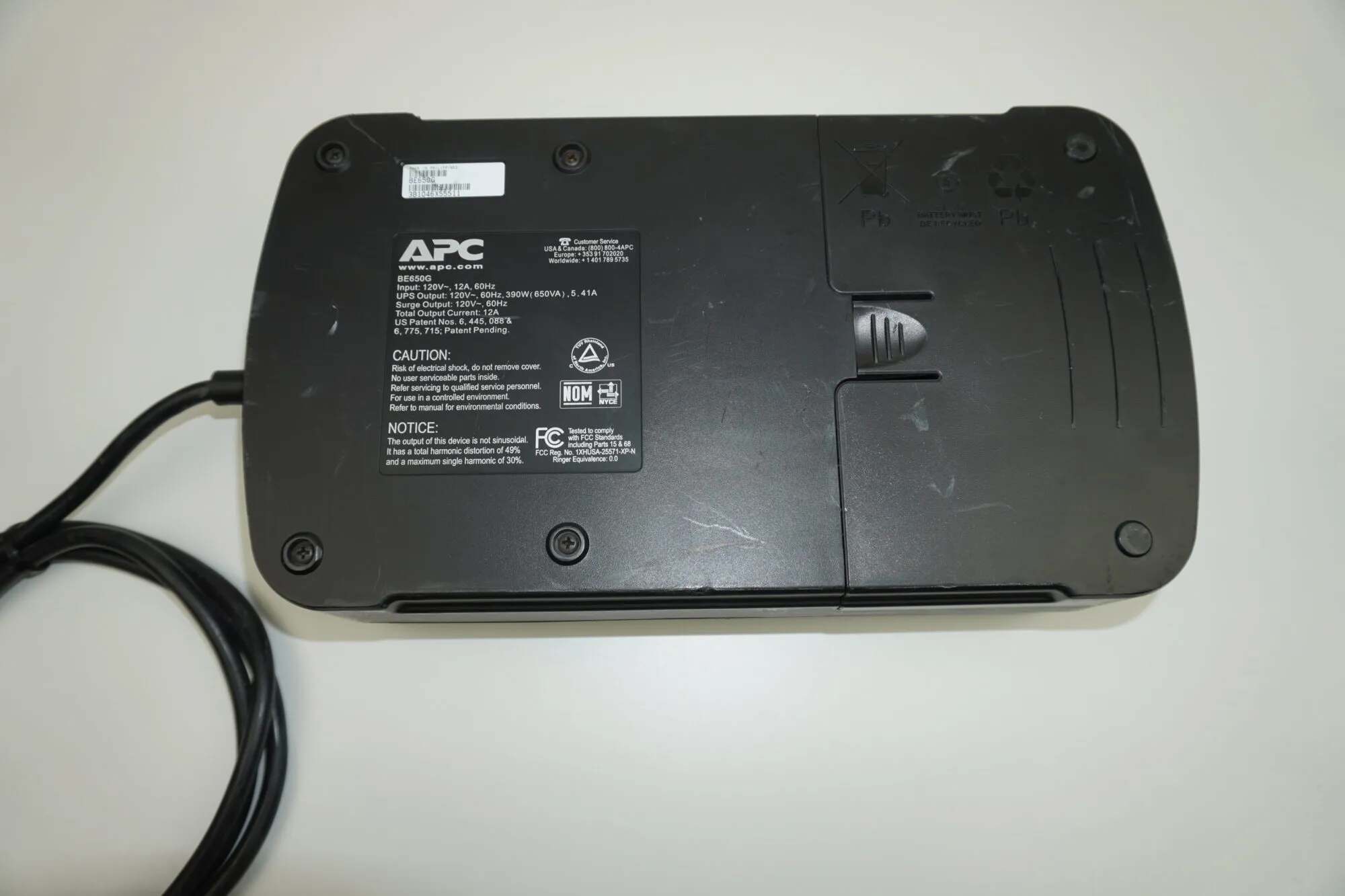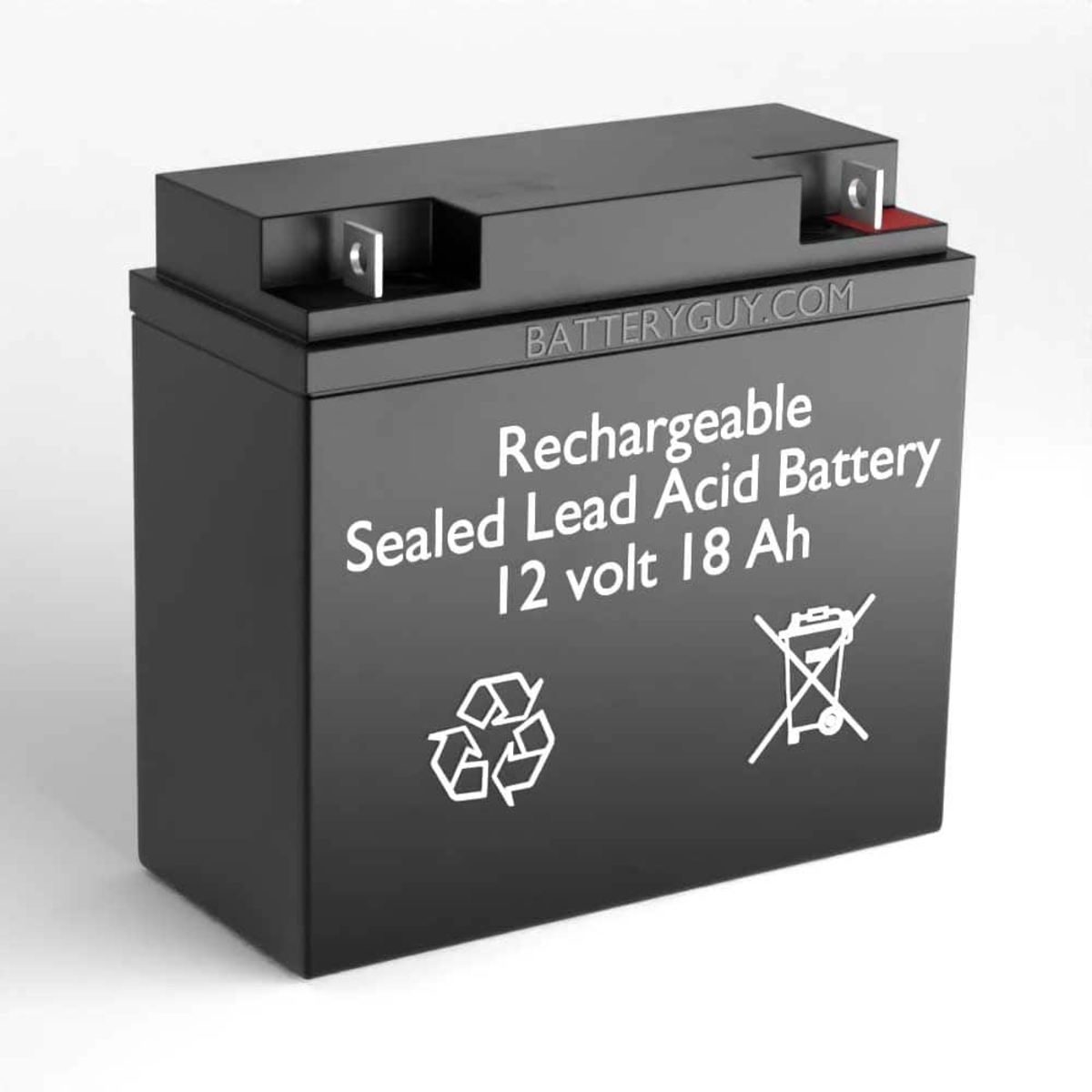Introduction
When it comes to keeping your electronic devices powered during unexpected power outages, an APC UPS (Uninterruptible Power Supply) is an essential piece of equipment. However, the effectiveness of your APC UPS greatly depends on the lifespan of its battery. Understanding how long your APC UPS battery will last is crucial for ensuring the uninterrupted operation of your devices.
In this article, we will explore the factors that affect the battery life of an APC UPS, the typical lifespan of APC UPS batteries, and the signs that indicate it may be time to replace the battery. We will also provide useful tips on how to extend the lifespan of your APC UPS battery and guide you through the steps of replacing it when necessary.
Whether you’re relying on an APC UPS to power your computer, server, or other critical electronic devices, knowing the lifespan of your battery will help you plan for potential replacements and avoid unexpected downtime. So, let’s dive into the details and learn more about how long an APC UPS battery can last.
Factors Affecting Battery Life
The lifespan of an APC UPS battery can vary based on several factors. Understanding these factors can help you optimize the performance and longevity of your battery.
1. Capacity: The capacity of the battery, measured in Volt-Ampere-Hours (VAh) or Ampere-Hour (Ah), is a crucial factor in determining its lifespan. Higher-capacity batteries generally have a longer lifespan.
2. Load: The amount of power drawn from the APC UPS battery affects its runtime and, subsequently, its lifespan. Heavier loads can drain the battery faster and reduce its overall lifespan.
3. Temperature: Extreme temperature fluctuations can significantly impact the lifespan of your APC UPS battery. High temperatures can accelerate the rate of chemical reactions inside the battery, leading to faster degradation. It is recommended to keep the battery within the specified temperature range for optimal performance.
4. Cycling: The number of discharge and recharge cycles that the APC UPS battery goes through contributes to its overall lifespan. Frequent cycling can lead to wear and tear, reducing the battery’s capacity over time.
5. Maintenance: Regular maintenance practices, such as cleaning the battery terminals and ensuring proper ventilation, can help extend the lifespan of your APC UPS battery. It is important to follow the manufacturer’s guidelines for maintenance to prevent any issues.
6. Environmental Conditions: Factors like humidity, dust, and exposure to chemicals can also impact the lifespan of your APC UPS battery. Keeping the battery in a clean and controlled environment can help preserve its performance.
By understanding and addressing these factors, you can optimize the lifespan of your APC UPS battery and ensure reliable power backup for your critical devices.
Typical Lifespan of APC UPS Batteries
The lifespan of an APC UPS battery can vary depending on several factors, such as usage, load, and environmental conditions. On average, APC UPS batteries have a lifespan ranging from 3 to 5 years. However, it is essential to note that this estimate is based on general usage and may vary in specific situations.
The lifespan of a UPS battery is typically defined as the time period until its capacity drops to 80% of its original rating. After this point, the battery may not provide sufficient backup power to support your devices during a power outage.
It’s important to keep in mind that the actual lifespan of your APC UPS battery can be affected by various factors, including the frequency and duration of power outages, the load placed on the battery, the temperature of the environment, and the overall maintenance of the UPS system.
If you experience frequent power outages or keep the APC UPS under heavy load, the battery lifespan might be shorter. Similarly, if the UPS system is exposed to extreme temperatures or not properly maintained, the battery’s performance can be compromised.
Regularly monitoring the performance of your APC UPS battery is crucial to ensure that it is still functioning effectively. Some UPS models come with software or built-in features that allow you to check the battery health and estimated remaining runtime. Additionally, periodic battery tests can help assess the condition of the battery and provide an indication of when it may need replacement.
Remember, the typical lifespan of an APC UPS battery is an estimate, and individual cases can vary. It is important to keep an eye on the battery’s performance, follow the manufacturer’s recommendations, and be proactive in replacing the battery when necessary to avoid unexpected downtime during power outages.
Signs That Your UPS Battery May Need Replacement
An APC UPS is designed to provide reliable backup power during power outages, but over time, its battery may degrade and lose its capacity. It’s important to be aware of the signs that indicate your UPS battery may need replacement. Paying attention to these signs will help you avoid unexpected power failures and ensure the continued protection of your electronic devices.
1. Age: As mentioned earlier, the typical lifespan of an APC UPS battery is around 3 to 5 years. If your battery is approaching or has exceeded this timeframe, it is a good idea to consider replacing it to maintain optimal performance and reliability.
2. Reduced Runtime: If you notice that the backup runtime provided by your UPS has significantly decreased compared to when it was new, it might be an indication that the battery is no longer holding a charge. A noticeable decline in runtime means it’s time to replace the battery.
3. Constant Beeping: If your UPS emits continuous beeping sounds even when there’s no power outage or during normal operation, it could be a sign that the battery is failing. The beeping serves as an alert to inform you that the battery needs attention or replacement.
4. Inconsistent or Intermittent Power Supply: If you experience frequent or sudden power fluctuations or your electronic devices are not receiving a consistent power supply from the UPS, it’s possible that the battery is unable to sustain the load. In such cases, replacing the battery may resolve the issue.
5. Physical Damage: Inspect the UPS battery for any visible signs of damage, such as bulging, leaking, or cracked casing. Physical damage can indicate internal problems with the battery and should be addressed promptly through replacement.
6. Battery Self-Test Failures: UPS systems often have a self-test feature to check the health of the battery. If the self-test consistently fails or provides unsatisfactory results, it’s a clear indication that the battery is no longer functioning correctly and should be replaced.
If you observe any of these signs, consider replacing your APC UPS battery as soon as possible. Remember that a failing battery can compromise the reliability of your backup power system and put your electronic devices at risk. By proactively replacing the battery, you can ensure uninterrupted power supply and protect your valuable equipment from potential damage.
How to Extend the Lifespan of Your APC UPS Battery
To get the most out of your APC UPS battery and maximize its lifespan, there are several practices you can implement. By following these tips, you can ensure the longevity and optimal performance of your UPS system.
1. Avoid Overloading the UPS: One of the key factors that can shorten the lifespan of a UPS battery is overloading. Make sure you do not exceed the recommended load capacity of your APC UPS as stated by the manufacturer. Overloading the UPS can put unnecessary strain on the battery and cause premature degradation.
2. Maintain Proper Ventilation: Proper airflow and ventilation are essential for the optimal functioning of your UPS battery. Ensure that the UPS system is placed in a well-ventilated area, away from excessive heat sources. Adequate ventilation helps dissipate heat and prevents the battery from overheating, which can lead to accelerated deterioration.
3. Control Environmental Conditions: The temperature and humidity levels in the surrounding environment can impact the lifespan of your APC UPS battery. Aim to keep the temperature within the manufacturer’s recommended range, typically between 20 to 25 degrees Celsius (68 to 77 degrees Fahrenheit). Additionally, avoid exposing the UPS to excessive moisture or extreme temperature fluctuations.
4. Implement Regular Battery Testing: Performing periodic battery tests is crucial for evaluating the health and status of your APC UPS battery. Most UPS systems have built-in self-test features that enable you to check the battery’s condition. Follow the manufacturer’s guidelines on how frequently to conduct these tests and take appropriate action if any irregularities are detected.
5. Provide Surge Protection: Investing in surge protectors or voltage regulators can help safeguard your electronic devices from power surges or voltage spikes. By preventing these fluctuations from reaching your UPS system, you reduce the strain on the battery and prolong its lifespan.
6. Perform Regular Maintenance: Regularly inspect and clean the battery terminals to ensure good electrical conductivity. Remove any dust or debris that may accumulate on the battery contacts or vents. Additionally, periodically check the UPS system for any signs of physical damage and address them promptly to prevent further issues.
7. Follow Manufacturer’s Guidelines: Lastly, always refer to the manufacturer’s instructions and guidelines for proper use, maintenance, and replacement of your APC UPS battery. They provide essential information specific to your UPS model and can help you optimize its lifespan.
By implementing these practices, you can prolong the lifespan of your APC UPS battery and ensure the continued reliability of your backup power system. Taking proactive steps to maintain the battery’s health will not only save you from potential downtime during power outages but also extend the overall lifespan of your UPS system.
Steps to Replace Your APC UPS Battery
At some point, you may need to replace the battery in your APC UPS to maintain its backup power capabilities. Here are the steps to guide you through the process:
1. Prepare: Start by disconnecting the UPS from the power source and turning it off. Ensure that you have a new replacement battery that is compatible with your APC UPS model. Read the user manual or consult the manufacturer’s website to find the correct battery part number and specifications.
2. Safety First: Handling batteries requires caution. Wear appropriate protective gear such as gloves and safety goggles. If the UPS battery has been recently in use, allow it to cool down before proceeding.
3. Access the Battery Compartment: Depending on the model, locate the battery compartment on the UPS. Some models might require removing a panel or sliding out a tray to access the battery.
4. Remove Old Battery: Carefully disconnect the old battery cables from the UPS terminals. Take note of the cable configuration or take pictures to ensure correct reconnection later. Gently lift the old battery out of the compartment and place it aside.
5. Prepare New Battery: Unpack the new battery and ensure that it is free from any shipping or packaging materials. Verify that the new battery matches the specifications and part number of the original battery.
6. Install New Battery: Carefully place the new battery into the compartment, ensuring it is properly aligned. Connect the battery cables to their respective terminals, following the configuration noted during the removal of the old battery. Ensure a secure and tight connection for each cable.
7. Close the Battery Compartment: Once the new battery is securely installed, close the battery compartment by reattaching the panel or sliding the tray back into place. Ensure that it is properly secured to prevent any accidental dislodging of the battery.
8. Power Up and Test: Plug the UPS back into the power source and turn it on. Allow the UPS to charge the new battery for the recommended charging time as mentioned in the user manual or manufacturer’s guidelines. Once fully charged, perform a self-test to ensure the UPS is functioning correctly with the new battery.
9. Dispose of the Old Battery: Safely dispose of the old UPS battery according to local regulations. Contact your local recycling center or battery-specific disposal facilities to properly recycle or dispose of the old battery.
Following these steps will ensure a smooth battery replacement process for your APC UPS. It’s essential to prioritize safety during the replacement and to adhere to the manufacturer’s guidelines for your specific UPS model. By replacing the battery when needed, you can continue to rely on your APC UPS for efficient backup power during unexpected outages.
Conclusion
Understanding the lifespan of your APC UPS battery and knowing when to replace it is crucial for ensuring reliable power backup for your electronic devices. By considering the factors that affect battery life, you can optimize the performance and longevity of your UPS system.
Typically, APC UPS batteries have an average lifespan of 3 to 5 years, but individual cases may vary. Monitoring signs that indicate the need for replacement, such as reduced runtime and constant beeping, will help you avoid unforeseen power failures.
To extend the lifespan of your APC UPS battery, follow best practices such as avoiding overloading, maintaining proper ventilation, controlling environmental conditions, implementing regular battery testing, providing surge protection, performing regular maintenance, and following the manufacturer’s guidelines.
When the time comes to replace your APC UPS battery, follow the step-by-step process of preparing, ensuring safety, accessing the battery compartment, removing the old battery, preparing and installing the new battery, closing the compartment securely, powering up, testing, and properly disposing of the old battery.
By taking these measures, you can ensure the longevity and optimal performance of your APC UPS battery, giving you peace of mind and uninterrupted power backup during unforeseen power outages.







